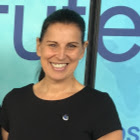
Graduate case studies
Even though many of our graduates will have progressed in their careers since completing a case study, they are still of interest to students who wish to gain an understanding of the world of work.
Module coordinator and teacher on undergraduate and postgraduate taught programmes and admissions tutor on postgraduate taught programmes.
My days are very varied, from pulling together a lecture or workshop for under- or postgraduates, to seeing students one-to-one for supervision, working online to support distance students with questions or discussions, advising and supporting professional colleagues to make decisions about their future in professional development or research.
Being part of the frontier of an exciting and developing profession. Contributing to the knowledge and skills of those new to the profession, supporting and contributing to what we know about human communication but also encouraging research and debate about what we do not yet know.
I am often required to manage several objectives all at the same time. Things move in and out of priority and some things are more familiar than others and may not be within my current skill set; changes in one element can have a dramatic impact on others. The introduction of a new university process for example can require learning a whole new set of skills in IT.
Because as well as enjoying making a difference to individuals in terms of improving their communication skills, I wanted to enable others to do the same and to not only train to work as a SLT but to develop professional expertise, so that they could be the best for their clients that they can be.
Flexibility. The ability to prioritise, to respond to pressures and identify problem solving techniques. Good communication skills which transcend whole group learning, one to-one-tutorials, face-to-face and electronic mediums. A proactive and positive approach to information. A desire to ask questions and learn.
Qualified as a Speech and Language Therapist in 2004, via a full-time undergraduate programme, completed over 3.5 years whilst raising two primary school aged children. Worked as a SLT for 6 years.
Completed a MSc in Speech Difficulties in 2010 whilst working full-time as a SLT employed by a community NHS SLT provider. Continued to work as a SLT but in 2011 took locum work to widen horizons and experience.
2013 employed by a county council education authority to set up and manage a new early intervention service around communication skills for children 0-5 years.
2015 joined a different university to teach paediatric communication development and difficulties to foundation degree students.
2017 joined the University of Sheffield to teach undergraduate and postgraduate speech and language therapists and associated professionals.
As well as continuing to work as a university teacher, I am currently completing a PhD; this is expected to continue for some years.
Some may feel that a career in speech and language therapy is narrow; they may just consider, do I want to be a speech and language therapist? But this is much less the case than you may think. Communication is an intrinsic part of what it is to be human and so there not only huge opportunities to help different populations, children, adults, youth groups but different conditions; hearing impairment, traumatic brain injury, early childhood development, elderly care, but also different perspectives; scientific, neurological, linguistic, developmental, educational. Whatever your particular area of interest; clinical therapy, rehabilitation, educational support, research, service development, teaching and or professional development, there are opportunities for you. As yet, there are horizons not yet fully explored by our profession such as in representing service users in educational or political forums.
Please look at the University of Sheffield Department of Human Communication Science webpages for more information to train as a SLT (BMedSci Speech Therapy) or for postgraduate professional development opportunities (Prospective Postgraduates).
A breakdown in communication has the potential to impact across all walks of life and you do not have to be a speech and language therapist to make a difference to people with communication impairment. Training in understanding human communication and the impact on the individual when there is a communication breakdown will provide not just an informed perspective from which to aid individuals but a unique insight from which to explore further research. It will encourage you to ask questions, consider solutions, make changes, question policies or seek to influence them. Society needs therapists, but also researchers, advocates and spokespersons; perhaps that person is you!
Last updated: 05 Nov 2018

